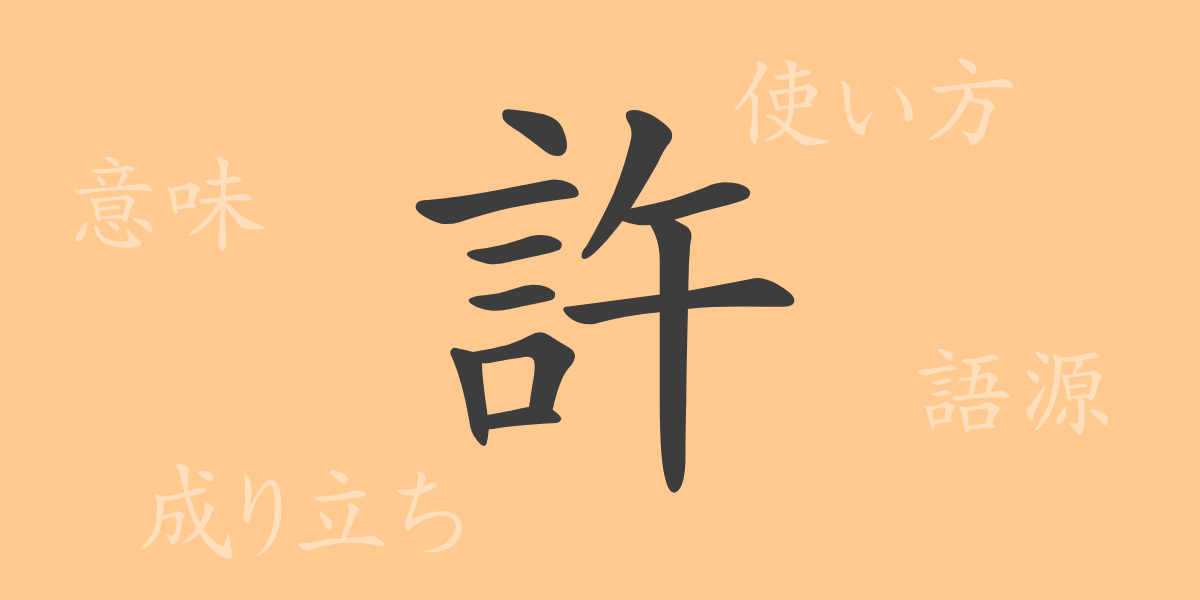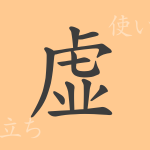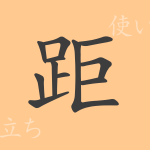The kanji deeply rooted in Japanese culture carry a rich history and meaning within each character. The common kanji “許(きょ, kyo)” is no exception and is one of the important kanji frequently used in our daily lives. This article will provide a detailed explanation of “許(きょ, kyo)” from its origin, meaning, usage, readings, stroke count, and radical, to the idioms and proverbs that use this kanji. Let’s delve into the profound world of kanji and rediscover the beauty of the Japanese language.
Origin of 許(きょ, kyo)
The kanji “許(きょ, kyo)” can trace its origins back to ancient Chinese oracle bone inscriptions. Originally, it developed from a symbol indicating a boundary within a certain range. Later, the phonetic element “午(ご, go)” was added, emphasizing the act of granting permission or indicating a place. Over time, “許(きょ, kyo)” evolved to embody the concepts of interpersonal relationships and social consent.
Meaning and Usage of 許(きょ, kyo)
The kanji “許(きょ, kyo)” primarily means “to permit,” “to allow,” or “a certain range.” It is commonly used when granting someone permission or obtaining consent. It also indicates a specific place, used to show the extent from “here to there.” In Japanese, it is used to express important social concepts such as tolerance and consent, as seen in words like “許容(きょよう, kyoyou)” and “許諾(きょだく, kyodaku).”
Readings, Stroke Count, and Radical of 許(きょ, kyo)
Understanding both the form and meaning of the kanji “許(きょ, kyo)” allows for a deeper connection to the Japanese language.
- Readings: The on-yomi (Chinese reading) is “キョ(きょ, kyo),” and the kun-yomi (Japanese reading) is “ゆる.す(ゆるす, yurus)”,”ゆる.し(ゆるし, yurushi)”,”もと(もと, moto).”
- Stroke count: “許(きょ, kyo)” has 11 strokes.
- Radical: The radical for “許(きょ, kyo)” is 言(ごんべん, gonben).
Idioms, Proverbs, and Phrases Using 許(きょ, kyo)
There are many idioms, proverbs, and phrases in Japanese that incorporate “許(きょ, kyo).” Here are a few examples:
- 許可(きょか, kyoka): Permission, formal approval to do something.
- 許諾(きょだく, kyodaku): Acceptance of a request or a favor.
- 無許可(むきょか, mukyoka): Without official permission.
- 特許(とっきょ, tokkyo): A patent, granting exclusive rights for an invention.
- 許嫁(いいなずけ, iinazuke): A betrothed or fiancé(e).
- 「口は災いの元」: A proverb warning that careless talk can cause problems. The concept of “許(きょ, kyo)” hints at the actions related to the use of words.
Summary of 許(きょ, kyo)
The kanji “許(きょ, kyo)” is indispensable in Japanese due to its diverse meanings and usage. From the concepts necessary for social life, such as permission and consent, to idioms that describe personal relationships like “許嫁(いいなずけ, iinazuke),” “許(きょ, kyo)” plays a vital role in our language. Through this article, we hope you can feel the deep meaning and history contained within a single kanji and deepen your understanding of Japanese.

























